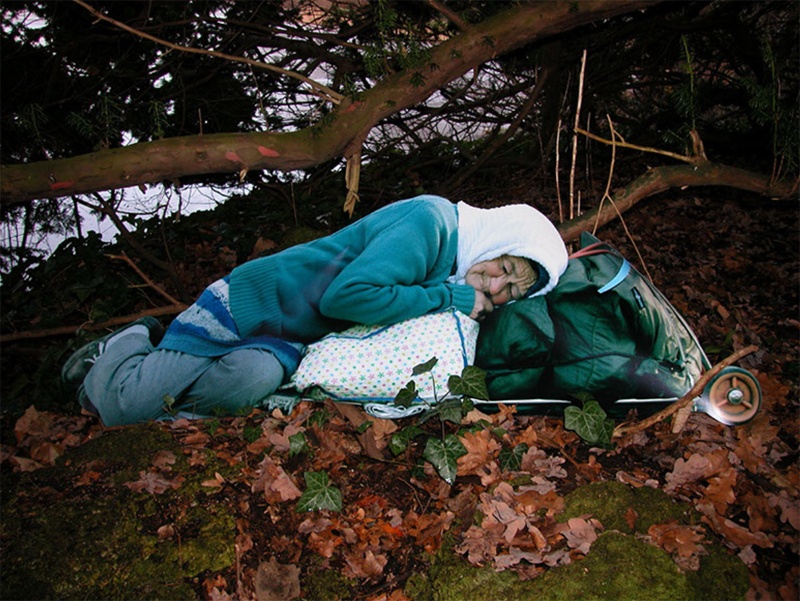
- Marcha van den Hurk, Charlotte, Berlin 2008. Image: marchavandenhurk.com.
‘I don’t seem to be able to make a decision! I know I want to go to Siberia to train with this inspiring teacher, but I can’t get myself signing up for it. It’s driving me nuts.’ Me and Leisa, one of my fellow djembe students, were talking in the parking lot after class. It was obvious how making the decision weighed heavily on her. We talked a bit and then it occurred to me that what Leisa experienced is something that often happens to many of us. That is, if we don’t watch ourselves. Here’s what may occur:
When Leisa first learned about the trip she immediately had this sense of inner excitement. ‘Yeah, nature! I’ll be spending time in this really fabulous nature!’ Something inside her was overexcited with the prospect of being in rough nature again.
But then, before she knew it, insecurity kicked in. There was this other voice that said she had already been travelling way more than enough this year. And didn’t she also want to return to Senegal in winter or early spring? That doesn’t work well with this Siberia trip, does it? These and all other kinds of counter-arguments were being thrown in.
As a result, Leisa felt stuck in a rut, unable to make a decision. When I spoke with her, it had already been going on for weeks. ‘Do you know how exhausting this is?’, Leisa asked me with a sigh. ‘All the time this thing is going through my mind, but I don’t feel capable of making a decision and stick to it because I simply don’t trust I’ll have it right.’
Recognizable? So what do you do when you find yourself stuck in a similar way? I only have one advice: Go with your body. Here’s why. Your mind can only think one thought at a time. In order to draw a conclusion, it collects discrete bits of data that it consciously adds together. The body, however, has access to everything it has seen, felt, lived and stored over the years on any issue, at once. And it can communicate it in a single bodily feeling. For example, you know it physically — not mentally — when you’ve just entered your dreamhouse although you’ve not seen all the rooms. Or this very familiar sense you might have had in your body, that you had forgotten something, but couldn’t think of what it was. Your body knew, but you didn’t know what it was.*
Because of this capacity of the body, it is much smarter to rely on it as a decision making instrument than on your slow and more limited mind. But only a few of us have been trained this way and have learned to start trusting their bodies.
But it can be learned, no problem. So going with the body was exactly what Leisa and I did, standing there in the parking lot. When I asked her to, Leisa could easily get in touch with a part in her that was absolutely terrified about her going to Siberia. There was this sense of: ‘Help! Traveling with this Siberian teacher really implies I’m becoming crazy Leisa, instead of the normal girl I used to be.’ It was a fearful area inside her, that requested her full attention, something that she had been resistant to give it over those last weeks. In fact, she had tried to stay away from it as far as possible. This time, Leisa fully recognized this physical sense for trying to protect her from what it perceived as a very dangerous endeavor. That was basically all it needed to change into something new, something more supportive.
How it ended? Leisa did sign up for the Siberia trip. Early August she will be in the Altai Mountains. I just had a look online. Nature there looks just gorgeous.
Back to you. How do you make your decisions? Do you make a list with pros and cons or do you make use of your body sensations? I’d love to hear from you in the comment’s section on my blog.
*Source: Eugene T. Gendlin, Focusing. How To Gain Direct Access To Your Body’s Knowledge, London 2003.